
Our fastest mainstream varmint cartridge is nearly 85 years old. Sure, there are a couple of .22-caliber cartridges that match or slightly edge its performance, but they never really grabbed American shooters’ imaginations like the Swift. Winchester chose the semi-rimmed 6mm Lee Navy as the parent case, and like anything well ahead of its time, the outdoor press summarily piled on. Furthermore, as is standard practice in the shooting community, decades-old assertions are passed down through the years – usually by people who have never actually shot the cartridge under discussion.
Modern barrels are quantifiably superior to those manufactured in the 1930s. But the standard line remains that Swifts quickly burn out barrels. Some early-model Swifts even included .223-inch grooves, holdovers from original .22 Hornets of the day. It is still occasionally related that Swifts develop dangerous pressure spikes. As a result, .220 Swift factory ammunition is generally anemic, often loaded below .22-250 Remington velocities in diffidence to older rifles. Handloading for modern firearms unleashes the Swift’s full potential.
The Swift’s overbore nature suffered from the limited powders available upon its introduction. The “barrel-burning” issue has largely been addressed by modern steels (combined with common sense, like not shooting your Swift until it gets so hot it’ll brand), improved cleaning techniques (a bore snake every 50 shots goes a long way toward extending barrel life) and up-to-date propellants.
This story is from the {{IssueName}} edition of {{MagazineName}}.
Start your 7-day Magzter GOLD free trial to access thousands of curated premium stories, and 9,000+ magazines and newspapers.
Already a subscriber ? Sign In
This story is from the {{IssueName}} edition of {{MagazineName}}.
Start your 7-day Magzter GOLD free trial to access thousands of curated premium stories, and 9,000+ magazines and newspapers.
Already a subscriber? Sign In
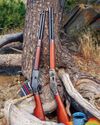
CIMARRON .32-20 Short Rifle & Carbine
In the heyday of Winchester Repeating Arms Company lever guns, it offered muskets, standard rifles, short rifles and saddle ring carbines.
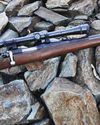
Remington's Model 722 and .222 Cartridge
It's easy enough to define what a varmint is, those pesky critters that tear up pastures, flower beds and all kinds of expensive crops people need for various reasons - most importantly, to make a living and/or something with which to feed themselves.

Coyote Bullets
What is Best for You?
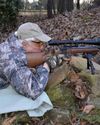
Remington's 5mm Rimfire Magnum
Shooting a Classic
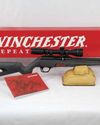
Winchester's New Wildcat
The Ultralight Rimfire Varmint Rifle
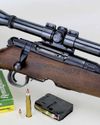
.223 Remington from .30-30 Winchester?
Multitasking for Varmints

LOADS FOR A .22 TCM
The .22 TCM first appeared commercially in 2012, chambered in a Rock Island Armory 1911-style handgun.
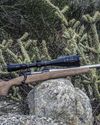
Everybody Loves Velocity
The 4,500-fps WSSM Project
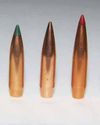
A BOLT-ACTION FRANCHI 224 VALKYRIE
Testing New Loads
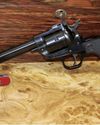
.22 Winchester Magnum Rimfire
Shooting Revolvers